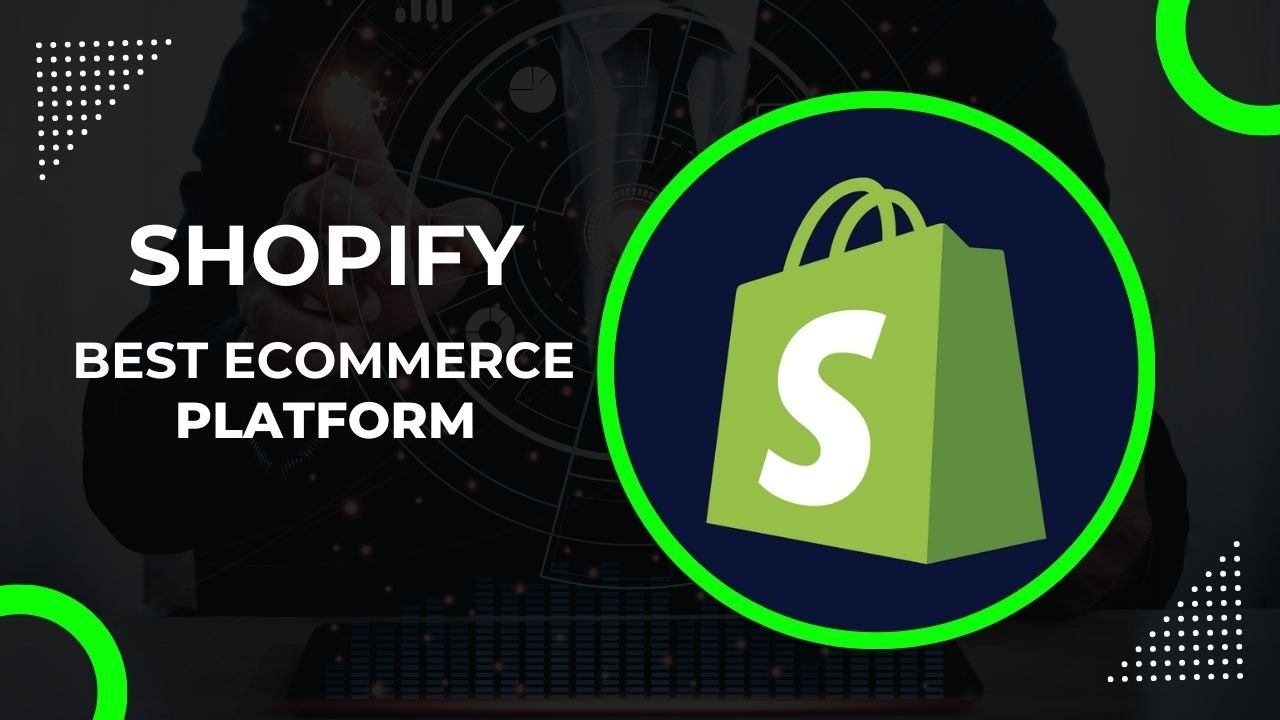
Why Shopify is the Best Platform for Ecommerce Businesses
Are you thinking about launching your own online store, or maybe you already have one and are considering switching platforms? In either case, choosing the right ecommerce platform is a big decision. There are many options out there, but Shopify stands out as the best choice for ecommerce businesses in 2024. Let’s check why.
1. User-Friendly Interface and Ease of Use
Shopify’s biggest strength is that it is very easy to use. Shopify is designed with simplicity in mind, making it perfect for beginners and experts alike.
Here’s why:
- Intuitive Dashboard: Shopify’s dashboard is super easy to navigate. You don’t need to be a tech whiz to manage your store.
- Drag-and-Drop Interface: You can customize your store’s layout without needing to write a single line of code. Just drag and drop the elements where you want them.
- Plenty of Customization Options: With Shopify, you can choose from numerous templates, change colors, and customize your store to match your brand’s style.
Comparison with Other Platforms: Other platforms like Magento or WooCommerce might offer some of these features, but they often come with a steeper learning curve. Shopify makes it easier to get started and grow.
2. Comprehensive App Ecosystem
One of the key reasons Shopify is a favorite among ecommerce businesses is its massive app ecosystem. Shopify’s app store has over 8,000 apps that help you customize and enhance your store. Here’s what you can do:
- Enhance Customer Experience: Use apps for live chat, customer reviews, or loyalty programs.
- Improve Analytics and Reporting: Get insights into your store’s performance with analytics apps.
- Automate Marketing Efforts: Apps for email marketing, SEO, and social media make reaching customers a breeze.
Shopify also ensures that these apps are regularly updated, meaning they stay up to date with the latest ecommerce trends.
Why It Matters: Whether you need tools for customer service, marketing, or inventory management, Shopify’s app store likely has an option that fits your needs.
3. Advanced Scalability Features
If you’re planning to grow your business, Shopify has got your back. Here’s how Shopify makes it easy to scale:
- Shopify Plus for High-Traffic Stores: Designed to handle large volumes of traffic and sales without a hitch.
- Advanced Inventory Management: Manage stock across multiple locations, automate reordering, and more.
- Multichannel Selling: Sell on your website and also on platforms like Amazon, eBay, Facebook, and Instagram.
Why This is Important: As your business grows, so does your need for a platform that can handle increased traffic, sales, and inventory. Shopify offers all the tools you need to scale efficiently.
4. Robust Security and Hosting Solutions
Security is a big deal in ecommerce, and Shopify doesn’t cut corners. Here’s what you get:
- Fully Hosted Solution: Shopify hosts your store on its servers, so you don’t have to worry about paying for external hosting or managing server maintenance.
- Top-Notch Security: Shopify is PCI DSS Level 1 compliant, which means it meets the highest standards for online security. It also offers SSL encryption to keep your customers’ data safe.
- Unlimited Bandwidth: No need to worry about paying extra during high-traffic periods; Shopify can handle it.
Why You Should Care: Your customers want to feel safe when shopping online. Shopify’s security features help build trust and keep their information protected.
5. Integrated Payment Solutions
When it comes to payments, Shopify makes things easy and secure:
- Shopify Payments: Accept payments without third-party gateways, reducing fees and simplifying the process.
- Multiple Payment Options: Accept credit cards, PayPal, Apple Pay, Google Pay, and more.
- Shop Pay: A streamlined, one-tap checkout option that improves conversion rates and includes strong fraud protection.
Things to Consider: While Shopify Payments is a great option, it’s not available everywhere, and some businesses may still need to use third-party gateways, which can come with fees.
6. Powerful Analytics and Reporting Tools
Understanding your customers and their behavior is key to running a successful ecommerce store. Shopify offers a range of built-in analytics tools:
- Detailed Reports: Access data on sales, customer behavior, marketing efforts, and more.
- Customer Insights: Learn who your customers are, what they’re buying, and how they’re finding your store.
- Benchmarking Tools: Compare your store’s performance against similar businesses.
Why Analytics Matter: These insights help you make informed decisions, improve your marketing strategies, and increase sales.
7. Mobile Responsiveness and SEO Benefits
Did you know that over 70% of all Shopify traffic comes from mobile devices? Shopify’s themes are mobile-responsive, which means your store will look great and work well on any device.
- Mobile-Optimized Themes: Ensures your customers have a smooth experience, no matter how they shop.
- Built-In SEO Tools: Help your store rank higher in search engines, making it easier for customers to find you.
Why Mobile Matters: With more people shopping on their phones, having a mobile-friendly store is crucial. Shopify’s themes and tools make this easy.
8. Marketing and Multichannel Selling Capabilities
Shopify offers a range of marketing tools to help you reach and convert customers:
- Email Marketing: Build and manage email campaigns directly from Shopify.
- Discounts and Promotions: Create discount codes, offer free shipping, or set up buy-one-get-one deals.
- Multichannel Selling: Sell on your website and other platforms like Amazon, eBay, and social media sites.
Why This is Great: These tools help you expand your reach, engage new customers, and boost sales across multiple channels.
Potential Drawbacks and Limitations of Shopify
No platform is perfect, and Shopify has a few downsides:
- Transaction Fees: If you’re not using Shopify Payments, you’ll have to pay transaction fees for every sale.
- Customization Limitations: While Shopify offers a lot of customization options, it might not be as flexible as some open-source platforms.
- Migration Difficulties: Moving your store away from Shopify can be time-consuming and complex.
Keep in Mind: It’s important to weigh these potential drawbacks against the benefits to see if Shopify is the right fit for you.
Summary:
Why Shopify is the Best Choice for Ecommerce in 2024
To sum it all up, Shopify is the best platform for ecommerce businesses in 2024 because:
- It’s user-friendly and easy to customize.
- It offers powerful tools for scaling, analytics, and multichannel selling.
- Security and hosting are built-in, providing peace of mind.
- Integrated payment solutions simplify transactions and improve customer experience.
- It has extensive marketing capabilities to help grow your business.
If you’re looking for a reliable, scalable, and user-friendly platform to build and grow your ecommerce store, Shopify is a top contender.
FAQs
- What makes Shopify different from other ecommerce platforms?
Shopify offers an easy-to-use interface, a vast app ecosystem, built-in security, and scalability features that many other platforms do not. - Is Shopify good for small businesses?
Absolutely! Shopify’s tools are flexible and scalable, making it a great choice for businesses of all sizes. - How secure is Shopify for online transactions?
Shopify is PCI DSS Level 1 compliant and offers SSL encryption, making it very secure for transactions. - Can I use Shopify for a dropshipping business?
Yes, Shopify supports dropshipping with apps like Oberlo and Spocket. - What are the main disadvantages of using Shopify?
Some downsides include transaction fees for third-party gateways, customization limits, and challenges with migrating to another platform.



